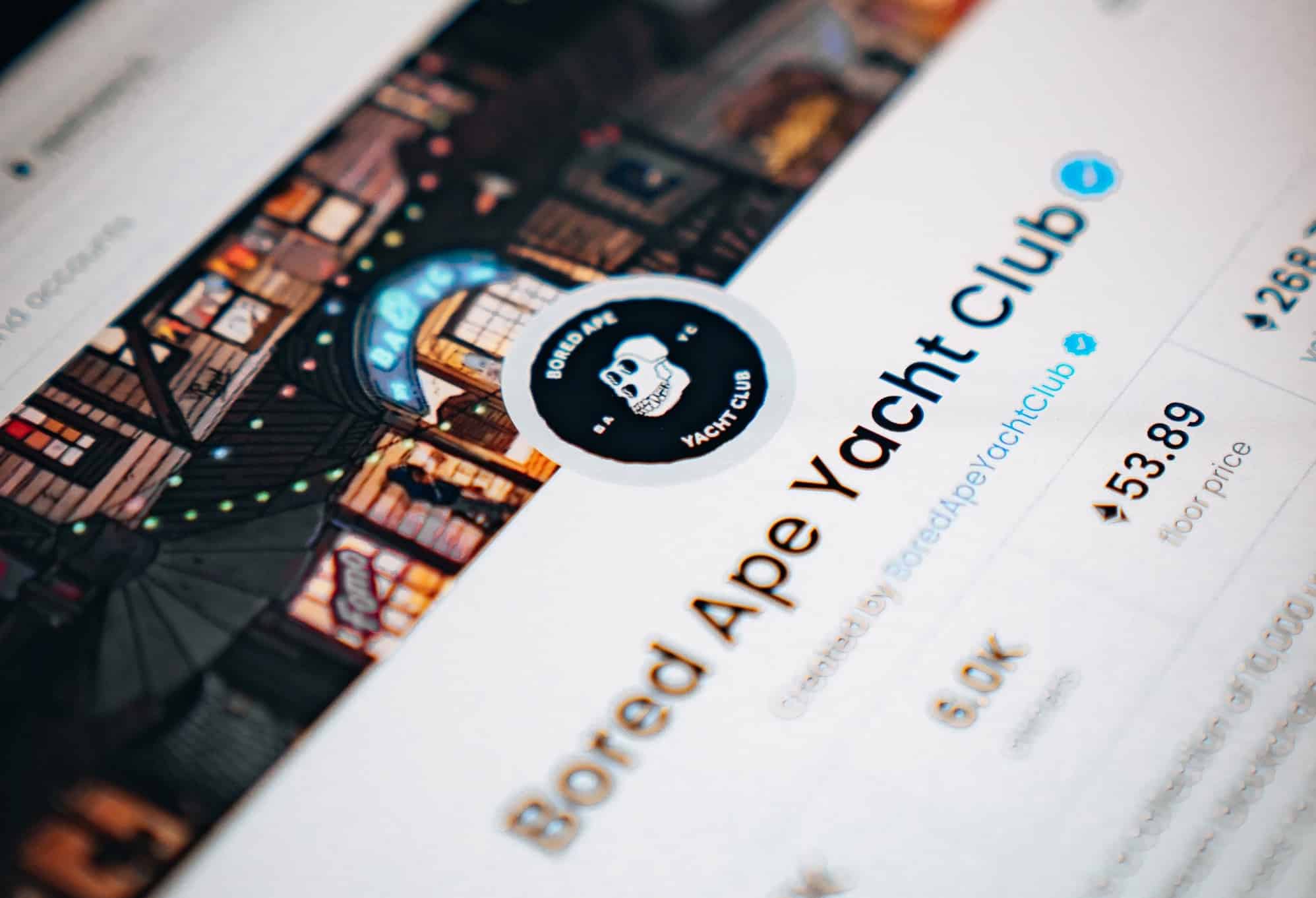15.Dez.2022
Die Zukunft der NFTs in Unternehmen: Chancen und Innovationen

Nicht-fungible Token (NFTs) haben in den letzten Jahren viel Aufmerksamkeit erregt, da sie einzigartige digitale Vermögenswerte wie Kunstwerke, Sammlerstücke und sogar virtuelle Immobilien darstellen können. NFTs haben jedoch auch das Potenzial, die Art und Weise zu revolutionieren, wie Unternehmen Geschäfte machen und mit ihren Kunden interagieren.
Entfesseln Sie die Macht von NFTs zur Schaffung von Knappheit und Exklusivität
Einer der Hauptvorteile von NFTs für Unternehmen ist ihre Fähigkeit, Knappheit und Exklusivität für ihre Produkte und Dienstleistungen zu schaffen. Durch die Verwendung von NFTs zur Darstellung einzigartiger Produkte oder Erfahrungen können Unternehmen ein Gefühl von Wert und Nachfrage schaffen, das mit herkömmlichen Produkten nur schwer zu erreichen ist. Dies kann besonders wertvoll für Unternehmen sein, die Artikel in limitierter Auflage verkaufen oder exklusive Erlebnisse anbieten, wie z. B. Konzerte oder VIP-Pakete.
Stellen Sie sich zum Beispiel eine Luxusmodemarke vor, die eine Handtaschenlinie in limitierter Auflage herausbringt. Anstatt einfach eine bestimmte Anzahl von Handtaschen zu produzieren und sie nach dem Prinzip „Wer zuerst kommt, mahlt zuerst“ zu verkaufen, könnte die Marke NFTs verwenden, um jede Handtasche zu repräsentieren. Die Kunden könnten dann die NFTs kaufen, die ihnen das Eigentum an der entsprechenden Handtasche verleihen würden. Die Verwendung von NFTs in diesem Szenario würde nicht nur ein Gefühl der Knappheit und Exklusivität rund um die Handtaschen schaffen, sondern es würde der Marke auch erleichtern, den Besitz jeder Handtasche zu verfolgen und zu authentifizieren.
Einsatz von NFTs zur Revolutionierung von Treueprogrammen und Kundenbelohnungen
Ein weiterer möglicher Anwendungsfall für NFTs ist die Schaffung von Treueprogrammen oder Belohnungssystemen. Unternehmen könnten NFTs nutzen, um Belohnungen oder Anreize zu schaffen, die von Kunden verdient und gegen exklusive Erlebnisse oder Gegenstände eingelöst werden können. Auf diese Weise könnten Unternehmen ihre treuesten Kunden auf ansprechendere und interaktivere Weise belohnen.
Ein Unternehmen könnte zum Beispiel ein Treueprogramm einrichten, bei dem Kunden für ihre Einkäufe oder ihre Interaktion mit der Marke mit NFTs belohnt werden. Die Kunden könnten diese NFTs dann für exklusive Produkte, Erlebnisse oder Rabatte einlösen. Die Verwendung von NFTs in diesem Szenario wäre nicht nur ein zusätzlicher Anreiz für Kunden, sich mit der Marke zu beschäftigen, sondern würde es dem Unternehmen auch erleichtern, das Prämienprogramm zu verfolgen und zu verwalten.
Beispiele für die Nutzung von NFTs in Unternehmen
- Luxusmodemarken, die NFTs zur Darstellung und Verfolgung von Artikeln in limitierter Auflage verwenden, wie z. B. Handtaschen oder Accessoires.
- Unternehmen, die Treueprogramme entwickeln, bei denen Kunden mit NFTs belohnt werden, die für exklusive Produkte oder Erlebnisse eingelöst werden können.
- Unternehmen für das Management der Lieferkette, die NFTs verwenden, um die Bewegung physischer Güter durch die Lieferkette zu verfolgen und zu authentifizieren.
- Plattformen für den Austausch digitaler Güter, die NFTs nutzen, um den Austausch von geistigem Eigentum, Lizenzvereinbarungen und anderen digitalen Gütern zu erleichtern.
- E-Commerce-Unternehmen, die NFTs zur Darstellung und Verfolgung einzigartiger, einmaliger Artikel verwenden, z. B. alte oder seltene Produkte.
- Ticketing-Unternehmen, die NFTs nutzen, um den Besitz und die Übertragung von Veranstaltungstickets darzustellen und zu verfolgen.
- Spieleunternehmen, die NFTs zur Darstellung von Spielgegenständen wie Waffen, Rüstungen oder virtuellen Immobilien verwenden.
- Kunstgalerien und Museen, die NFTs verwenden, um das Eigentum an digitalen Kunstwerken darzustellen und zu verfolgen.
- Musik- und Unterhaltungsunternehmen, die NFTs verwenden, um das Eigentum und die Rechte an musikalischen Werken und Darbietungen darzustellen und zu verfolgen.
- Dienstleistungsunternehmen, die NFTs nutzen, um die Bereitstellung einzigartiger Erlebnisse, wie z. B. private Führungen oder persönliche Coaching-Sitzungen, darzustellen und zu verfolgen.
Dies sind nur einige Beispiele für die vielen Möglichkeiten, wie Unternehmen die durch NFTs gebotenen Chancen und Innovationen nutzen können. In dem Maße, in dem sich die Technologie weiterentwickelt und weiter durchsetzt, werden wahrscheinlich noch mehr kreative und innovative Anwendungsfälle entstehen.
Die Vorteile von NFTs für das Lieferkettenmanagement und den Austausch digitaler Güter
Zusätzlich zu diesen Vorteilen bieten NFTs den Unternehmen noch eine Reihe weiterer Vorteile. So können NFTs auf der Blockchain leicht nachverfolgt und authentifiziert werden, was dazu beitragen kann, Betrug und Fälschungen zu verringern. Sie können auch zur Schaffung transparenterer und sicherer Lieferketten sowie zur Erleichterung des Austauschs digitaler Vermögenswerte verwendet werden.
Stellen Sie sich zum Beispiel ein Unternehmen vor, das physische Produkte wie Elektronik oder Kleidung herstellt und vertreibt. Das Unternehmen könnte NFTs verwenden, um jedes Produkt auf seinem Weg durch die Lieferkette zu repräsentieren, von der Produktion über den Vertrieb bis zum Einzelhandel. Dies würde es dem Unternehmen nicht nur erleichtern, die Bewegungen seiner Produkte zu verfolgen und zu verwalten, sondern auch eine transparentere und sicherere Lieferkette schaffen. In ähnlicher Weise könnten NFT den Austausch digitaler Güter, wie z. B. geistiges Eigentum oder Lizenzvereinbarungen, erleichtern.
Bewältigung der Herausforderungen bei der Einführung von NFTs für Unternehmen
Natürlich handelt es sich bei NFTs noch um eine relativ neue Technologie, und es gibt eine Reihe von Herausforderungen, die Unternehmen bewältigen müssen, um ihr Potenzial voll ausschöpfen zu können. Zu diesen Herausforderungen gehören der Bedarf an benutzerfreundlicheren Geldbörsen und Marktplätzen sowie die Notwendigkeit, die Verbraucher über die Vorteile von NFTs aufzuklären.
So sind beispielsweise viele Menschen noch nicht mit NFTs und ihrer Funktionsweise vertraut, was es für Unternehmen schwierig machen kann, ihren Kunden den Wert und die Anwendungsfälle von NFTs zu erklären. Außerdem ist die derzeitige Infrastruktur für NFTs nicht immer benutzerfreundlich, was es den Menschen erschweren kann, ihre NFTs zu kaufen, zu verkaufen und zu verwalten. Diese Herausforderungen müssen angegangen werden, damit NFTs ihr volles Potenzial in der Geschäftswelt entfalten können.
Die Zukunft von NFTs in der Geschäftswelt: Chancen und Innovationen
Trotz dieser Herausforderungen haben NFTs das Potenzial, die Art und Weise zu revolutionieren, wie Unternehmen Geschäfte machen und mit ihren Kunden interagieren. Durch die Nutzung der einzigartigen Funktionen von NFTs können Unternehmen für ihre Kunden ansprechendere und interaktivere Erfahrungen schaffen und gleichzeitig die Effizienz und Transparenz ihrer Abläufe verbessern. Mit der weiteren Entwicklung der Technologie werden wahrscheinlich immer mehr Unternehmen NFTs auf kreative und innovative Weise einsetzen.